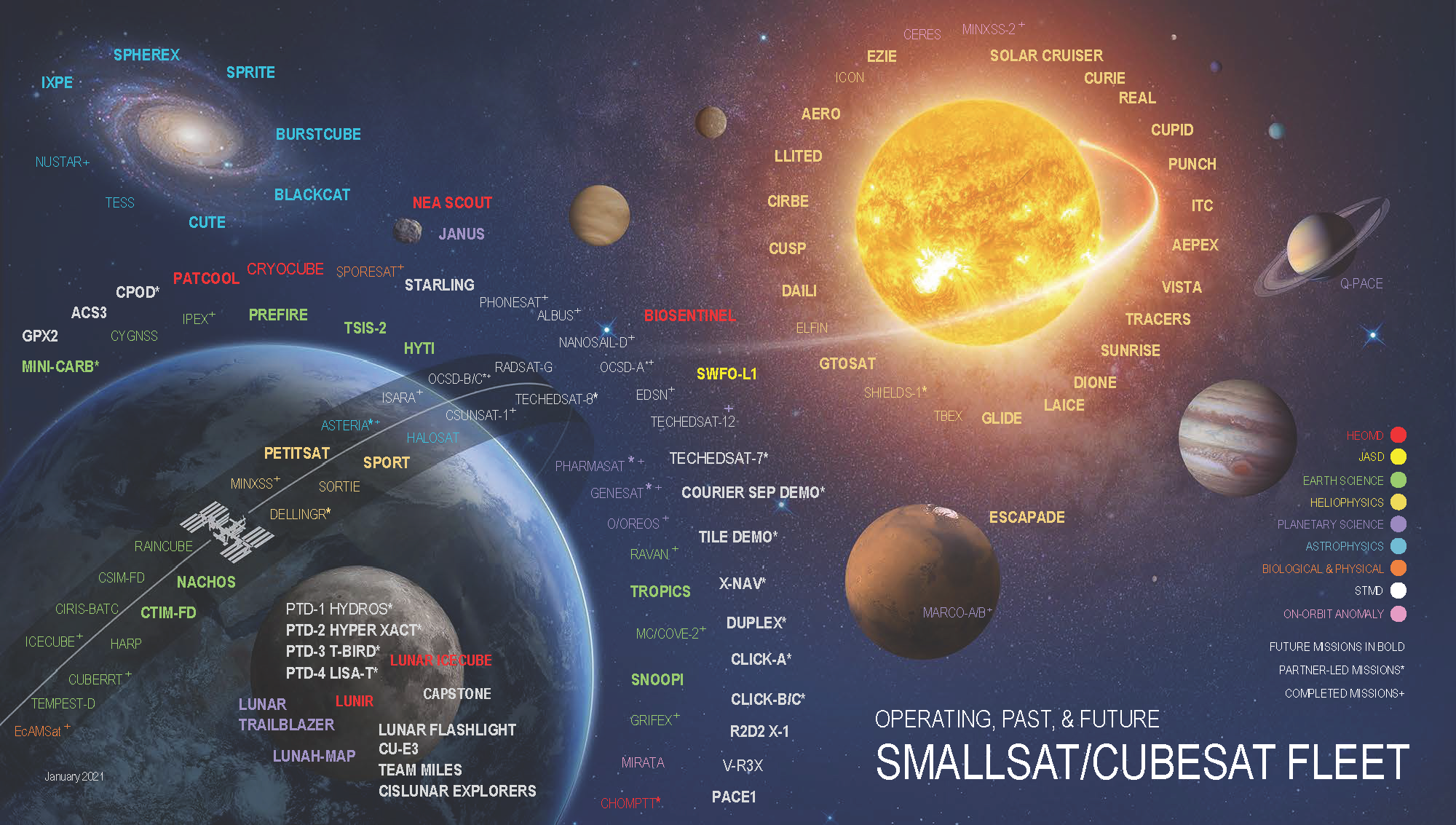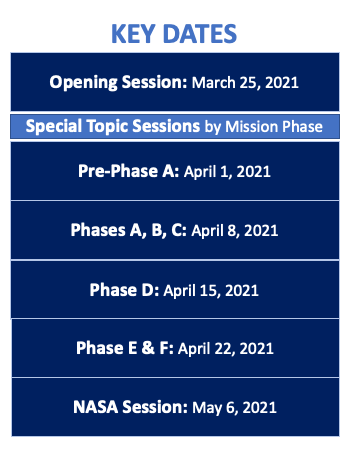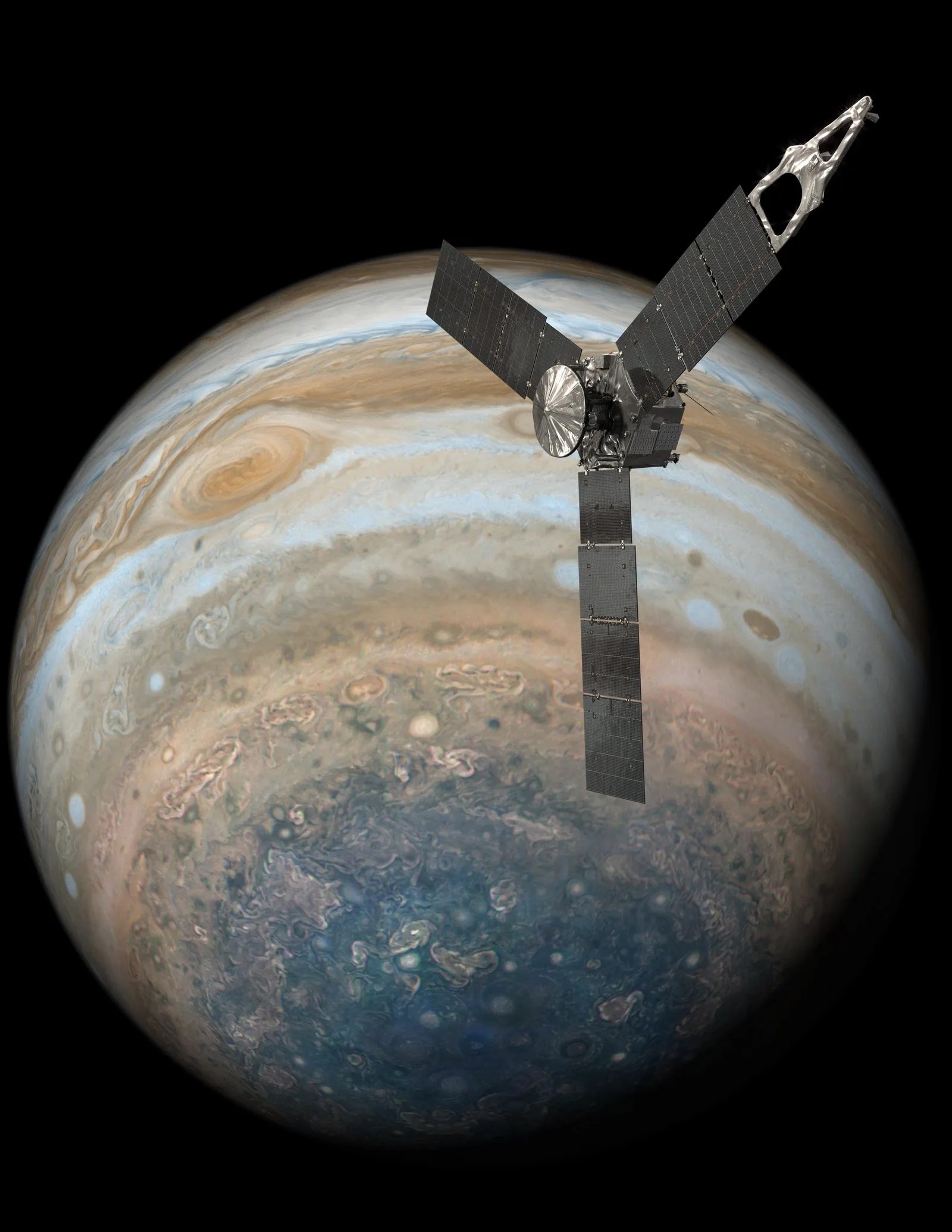2021 NASA Small Spacecraft Virtual Forum

Fast development cycles are a principal enabling feature of small satellite technology. The continual infusion of technology innovations, of creative approaches and of new capabilities is a key element of its successful utilization. Achieving these advancements requires open and efficient exchange of results, experiences, and ideas. For this reason, building and cultivating a community of practices around small satellite technology development and mission implementation are critical components of NASA’s small satellite mission programs.
The purpose of this virtual NASA Small Spacecraft Forum is to facilitate community learning through the sharing, exchange, and collection of experiences with small satellite mission development and execution across all NASA mission areas. The forum gathers principal investigators (PI), project managers (PM), and systems engineers (SE) of current and recent NASA-sponsored small spacecraft missions as well as NASA leaders and program managers and executives involved with small satellites. New and potential PIs and PMs are especially encouraged to register to participate in the forum for as much the technical discussion as to meet new colleagues and make new NASA connections. Designed to inspire frank and open discussions amongst participants, the event aims to establish and refresh best practices, solve individual and common problems, identify challenges along with possible solutions, and promote promising future prospects. Discussion topics cover the entire mission life cycle from concept formulation and proposal development, through construction, test, launch and operation, to end-of-mission, data archiving, and outcomes reporting. Discussed knowledge and feedback from the Forum particularly provide important guidance for the needed continual improvement and success in the formulation and implementation of small satellite programs at NASA.
The first day of the Forum on March 25 features an opening plenary session. The first part of this session is dedicated to general introduction of current NASA activities and plans related to small spacecraft missions, highlighting recent science and technology demonstration successes, and presenting feedback from industry vendors. A second part is devoted to the provision of information targeted toward new PIs, PMs, and SEs.
The following Thursdays, starting April 1 through April 22, are organized to host two sessions each with topics roughly organized by mission phase. Each session conducts a number of focused group discussions in closed settings on a variety of subjects within the session topic area. Main findings will be collected and synthesized by discussion moderators and reported out at the end of each session. A final NASA-only session will be held on May 6 to provide an opportunity for a deeper dive into the major lessons learned and challenges shared over the course of the series.
Organizers
Florence Tan, Forum Chair
Small Spacecraft Coordination Group, NASA Headquarters
Bruce Yost, Forum Co-Chair
Small Spacecraft Systems Virtual Institute, NASA Ames Research Center
Peter Kahn, Forum Co-Chair
Manager, Project Systems Engineering and Formulation Section, NASA Jet Propulsion Laboratory
Luis H. Santos Soto, Forum Co-Chair
Small Satellite Project Office, NASA Goddard Space Flight Center
Therese Moretto Jorgensen
Small Spacecraft Systems Virtual Institute, NASA Ames Research Center
Young Lee
Technical Group Supervisor & Project Support Lead, NASA Jet Propulsion Laboratory
David Wilcox
Small Satellite Project Office, NASA Goddard Space Flight Center
Samantha Fonder
Launch Services Office, NASA Headquarters
Justin Treptow
Element Lead, Small Spacecraft Technology Program and Flight Opportunities Program, NASA Headquarters
Andres Martinez
Program Executive, Advanced Exploration Systems, NASA Headquarters
Natalie Khalil
Booz Allen Hamilton / NASA Headquarters
Julianna Fishman
Small Spacecraft Systems Virtual Institute and Small Spacecraft Technology Program
MEI/NASA Ames Research Center





